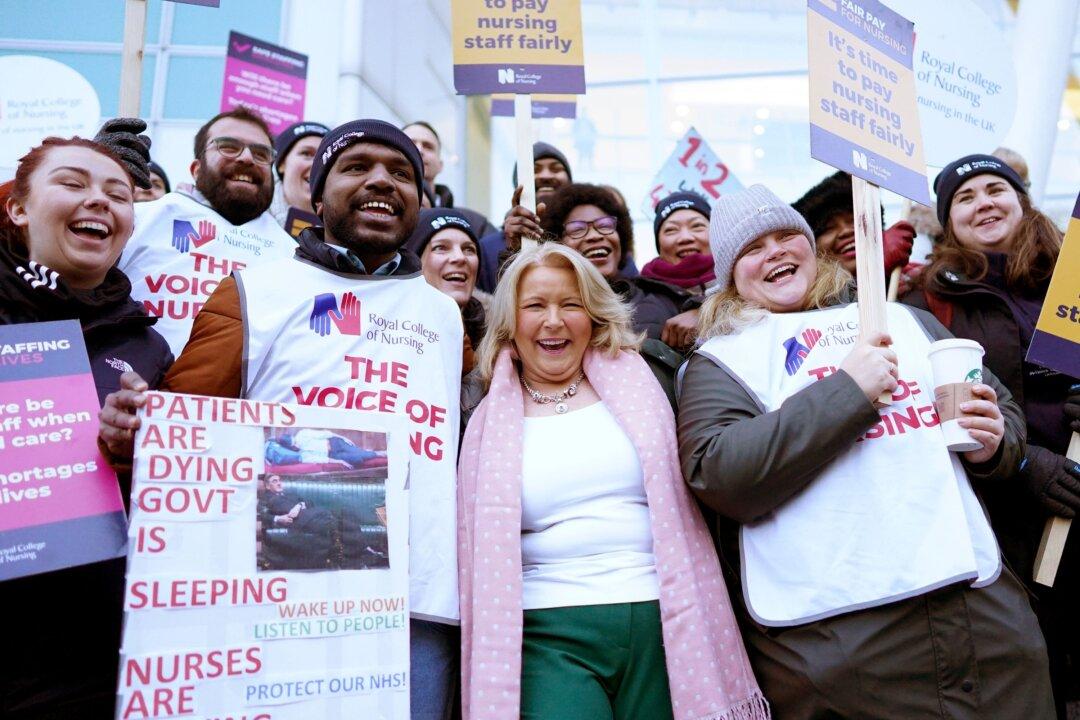The deadlock between the UK governments and unions continues on Thursday as thousands of nurses in England are striking for a second day.
Members of the Royal College of Nursing (RCN) from 55 NHS trusts in England are taking a two-day action after up to 100,000 RCN members from other NHS trusts across the UK walked out in December over pay disputes.





